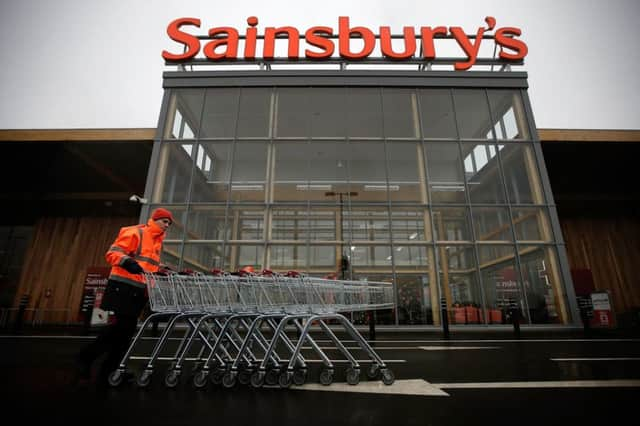Comment: New Sainsbury’s boss | Brazil counts cost


These are difficult days for the big four supermarkets, squeezed at the top and bottom of the market and losing market share to both. After ten years in the top job, King flagged up his departure some time ago and analysts have asked whether he is leaving on a high or a low and how his successor may fair.
King has generally been seen as one of Britain’s top businessmen, with a track record at Sainsbury’s that is second to none. He has added £10 billion to annual sales, driven up weekly customer footfall from 14 million to 24 million and trebled yearly profit from £254 million to £798m. However, like-for-like sales have slipped for the past two quarters, a sign, according to some critics, that the King magic is wearing off. A more enlightened view is that the supermarket sector is going through structural change.
Advertisement
Hide AdAdvertisement
Hide AdOnline sales have become a vital selling point, changing the nature of buying habits and the store portfolio. Big sheds are out as the space race goes into reverse. King was at the forefront of the corner shop revolution, noting the demand for convenience stores in neighbourhoods and the availability of cheap property in handy locations as high streets struggled to hold on to tenants.
Sainsbury’s has made another shift that represents a stepchange in how the market is evolving, The acquisition of Netto opens up a new front in the price war with the German discounters Aldi and Lidl who have parked their tanks on the lawns of Britain’s big four.
The German challenge is being taken seriously as Sainsbury’s sees its middle-class and well-to-do shoppers no longer feeling any stigma in being seen with Aldi and Lidl carrier bags. By extending their ranges into quality products, these chains have appealed to shoppers who know that they can now buy their fine wines and fresh salmon in these stores and at a cheaper price.
Sainsbury’s has therefore been forced to abandon its tactic of competing on quality, or by combining quality and lower prices. Netto will be unashamedly cheap, although this also risks irritating Sainsbury’s loyal customers who may wonder why they are being forced to pay higher prices for the same goods. Analysts say it would be dangerous to dilute the core offering too much.
All that said, the Netto deal was regarded as something of a masterstroke that took the sector by surprise and there seems no reason for Coupe to feel nervous about it being a drag on group performance. However, markets and customers are fickle beasts. Just ask Philip Clarke who inherited Tesco’s crown from Sir Terry Leahy and was forced to dismantle the failed US business, one of Leahy’s least admirable moves.
Coupe will be hoping history does not have a habit of repeating.
Cup of tears as Brazil counts cost of exit
BRAZILIANS are still shedding tears for their football team’s humiliating exit from the World Cup and more may flow if staging the tournament proves to have had only a negigible benefit on the economy.
Analysts say infrastructure is the big winner, while things such as productivity dipping for time off to watch games may have had a negative impact. Now the team is out, this won’t be so much of an issue.